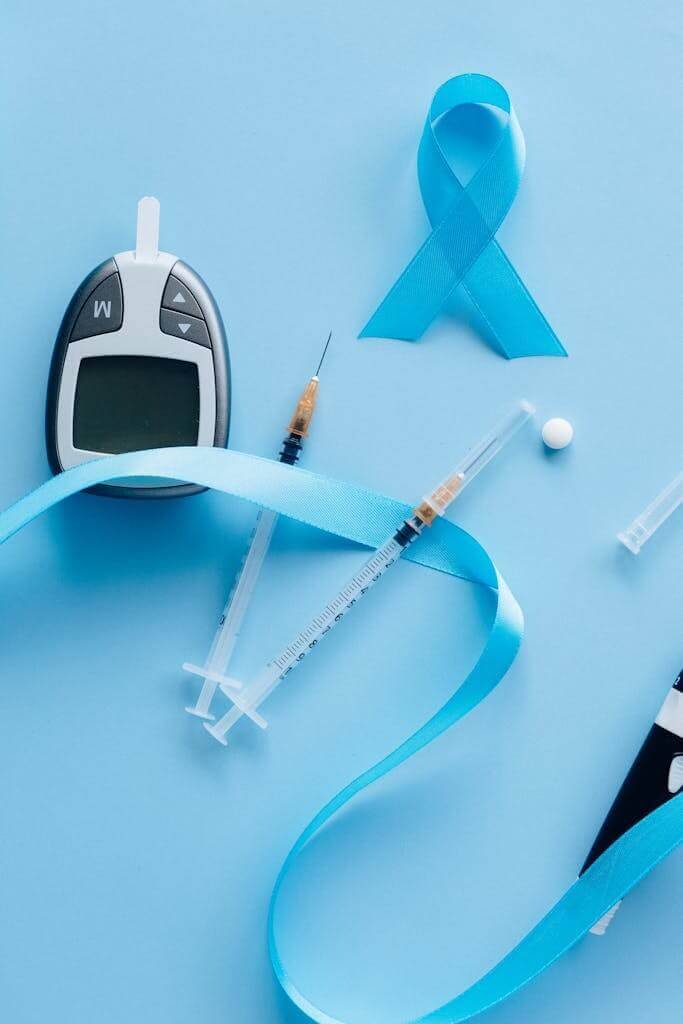Treatment Options for Cancer Patients With Diabetes
Have you ever wondered how diabetes may impact the treatment options available for cancer patients? Managing both conditions simultaneously can present unique challenges, requiring tailored approaches to ensure optimal care.
By exploring medication adjustments, dietary modifications, exercise recommendations, monitoring blood sugar levels, and support services, healthcare providers aim to address the complex needs of individuals facing this dual diagnosis.
Understanding the interplay between cancer and diabetes management is crucial for enhancing outcomes and quality of life.
Medication Adjustments
When managing diabetes while undergoing cancer treatment, adjusting your medications may be necessary for optimal health. It's crucial to work closely with your healthcare team to monitor blood sugar levels and ensure your medications are effectively managing both conditions.
Cancer treatments can sometimes affect how your body processes glucose, leading to fluctuations that may require medication adjustments. Your healthcare provider may need to modify your insulin dosage, oral medications, or other diabetes treatments to maintain stable blood sugar levels throughout your cancer treatment.
It's essential to communicate any changes in your health status, including fluctuations in blood sugar levels or side effects from cancer treatments, to your healthcare team promptly. They can help you navigate the complexities of managing both diabetes and cancer, making necessary medication adjustments along the way.
Dietary Modifications
To optimize your health while managing diabetes and undergoing cancer treatment, consider making dietary modifications that can support your overall well-being and help maintain stable blood sugar levels. Focus on consuming a balanced diet rich in whole foods such as fruits, vegetables, whole grains, lean proteins, and healthy fats. Limit your intake of processed foods, sugary drinks, and high-fat snacks to help regulate your blood sugar levels and support your body's nutritional needs.
Consider working with a registered dietitian who can help tailor a meal plan to meet your specific health requirements. Monitoring your carbohydrate intake and choosing complex carbohydrates over simple sugars can help prevent spikes in blood sugar levels. Additionally, spacing out your meals and snacks evenly throughout the day can assist in managing your diabetes while providing sustained energy levels during cancer treatment.
Remember to stay hydrated by drinking plenty of water and herbal teas, and aim to incorporate physical activity into your daily routine to further support your overall health and well-being.
Exercise Recommendations
Consider incorporating regular physical activity into your routine to support your overall health and well-being while managing diabetes and undergoing cancer treatment. Exercise is beneficial for both conditions as it can help improve blood sugar levels, reduce insulin resistance, and boost your mood. Aim for a mix of aerobic exercises like walking, swimming, or cycling, along with strength training exercises to enhance muscle mass and bone strength.
It's important to consult with your healthcare team before starting any exercise regimen to ensure it's safe and appropriate for your individual health needs. Start slowly and gradually increase the intensity and duration of your workouts as you build strength and endurance. Listen to your body and make adjustments as needed to prevent overexertion or injury.
Regular physical activity not only helps control blood sugar levels but also promotes cardiovascular health, reduces stress, and may even improve cancer treatment outcomes. By staying active, you can enhance your overall quality of life while managing diabetes and undergoing cancer therapy.
Monitoring Blood Sugar Levels
Ensure regular monitoring of your blood sugar levels to effectively manage diabetes while undergoing cancer treatment. Monitoring your blood sugar levels is crucial in managing both diabetes and the potential impact of cancer treatment on your body. Keep a close eye on your blood sugar readings throughout the day, especially before and after meals, as well as before bedtime. This will help you understand how different foods, activities, and medications affect your blood sugar levels.
Consistent monitoring allows you to make timely adjustments to your treatment plan, such as insulin dosage or dietary changes, to keep your blood sugar within a healthy range. Work closely with your healthcare team to establish a monitoring schedule that suits your needs and ensures optimal control. Remember to record your blood sugar levels regularly and bring this information to your medical appointments for review.
Support and Counseling
Seek out support and counseling services to help you navigate the emotional challenges of managing both cancer and diabetes concurrently. Dealing with the physical and emotional burden of these conditions can be overwhelming, but you don't have to face it alone. Support groups can provide a safe space for you to share your experiences, fears, and triumphs with others who understand what you're going through. Counseling services can equip you with coping strategies to manage stress, anxiety, and depression that may arise during your treatment journey.
Connecting with a counselor or therapist can also help you address any concerns about treatment adherence, lifestyle changes, or the impact of your conditions on your relationships. They can offer guidance on how to prioritize self-care and make decisions that align with your values and goals. Remember, seeking support is a sign of strength, not weakness. Embracing the assistance of others can empower you to face the challenges of cancer and diabetes with resilience and hope.
Conclusion
Overall, managing cancer and diabetes can be challenging, but with the right treatment options, it's possible to improve quality of life and overall health.
By making medication adjustments, dietary modifications, and following exercise recommendations, cancer patients with diabetes can better navigate their health journey.
Monitoring blood sugar levels and seeking support and counseling are also crucial aspects of managing these conditions effectively. Remember, you aren't alone in this, and there are resources available to help you every step of the way.
Stay strong and keep fighting!





